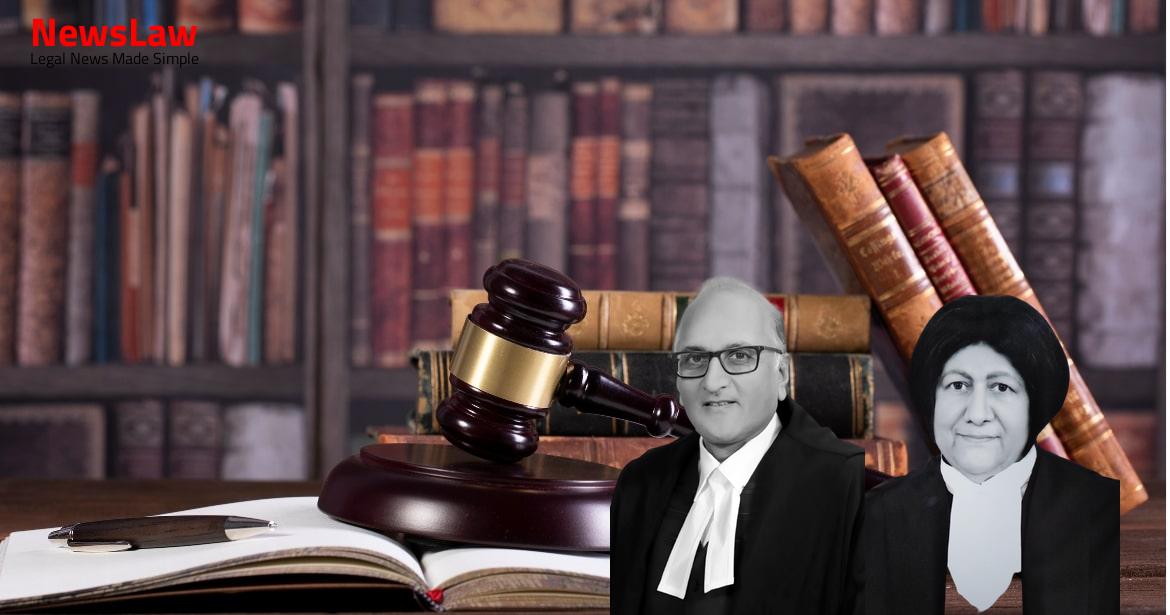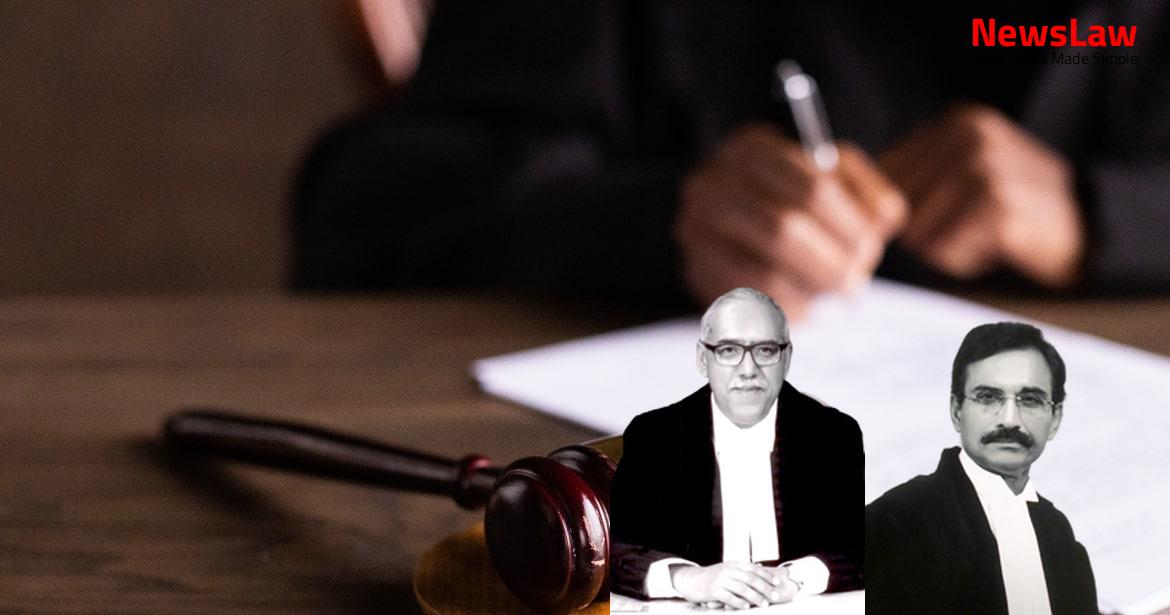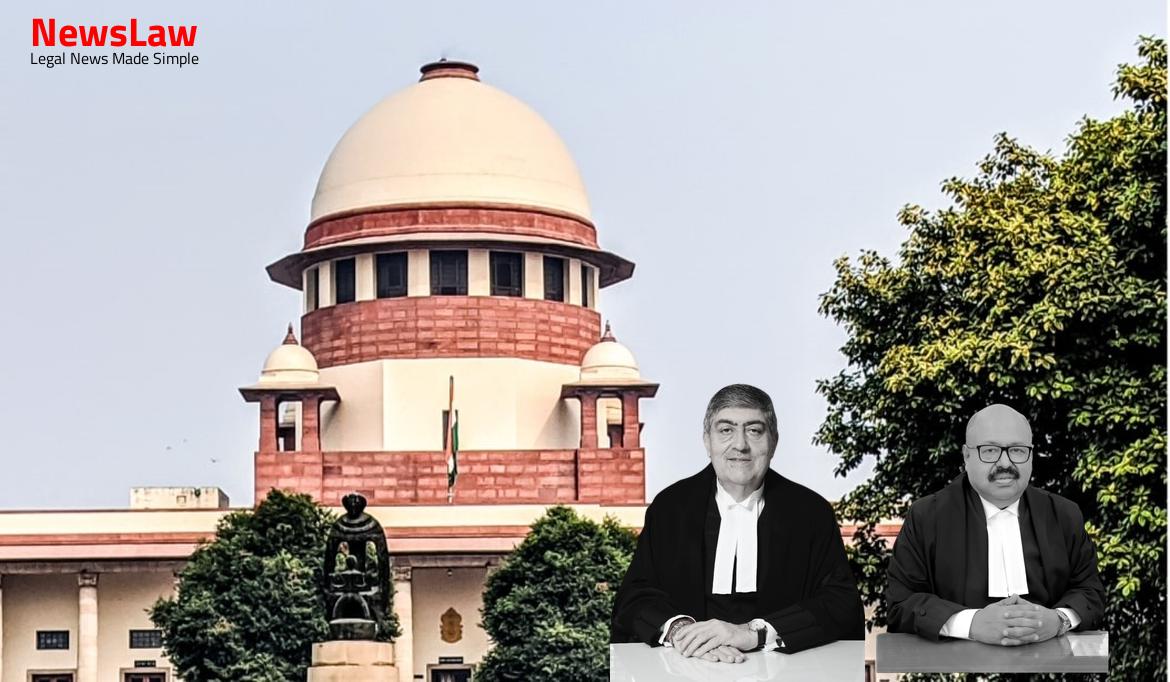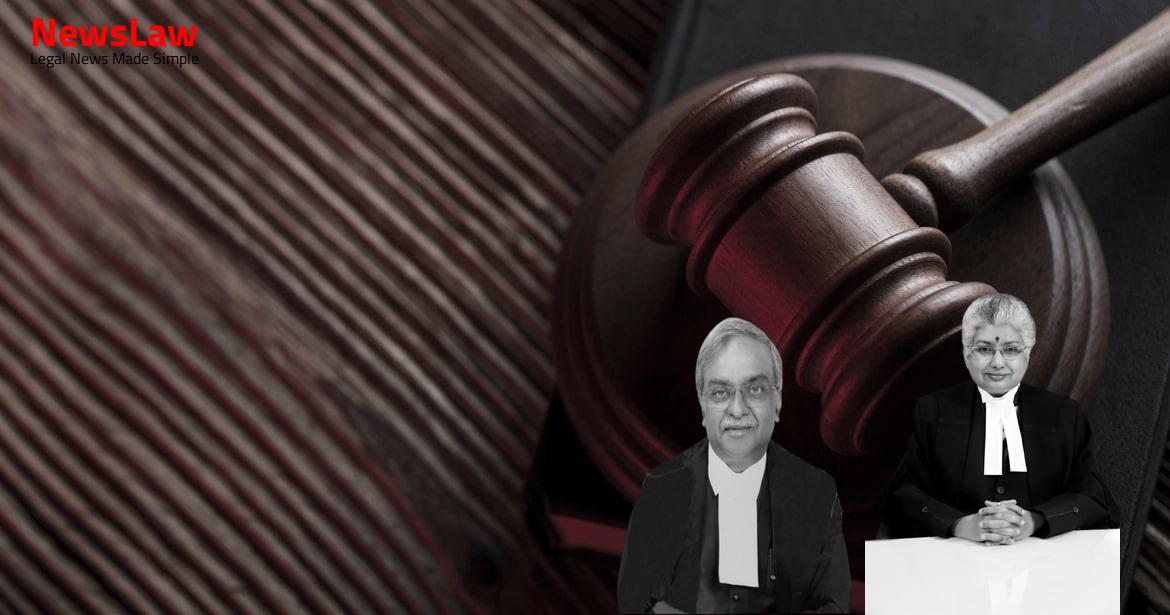In the case of The State v. Accused Appellant and Main Accused Khilai, the High Court at Jabalpur has acquitted the accused appellant of attempted murder charges. The prosecution failed to prove common intention between the accused appellant and Khilai, leading to the acquittal. Stay tuned for more updates on this significant legal development.
Facts
- The accused appellant was sentenced to undergo rigorous imprisonment for five years and fined Rs. 1000 by the Additional Sessions Judge.
- The High Court of Madhya Pradesh at Jabalpur dismissed the appellant’s appeal and upheld the judgment of conviction passed by the Additional Sessions Judge.
- The appellant was convicted under Section 307 read with Section 234 of the Indian Penal Code for attempt to murder the complainant with common intent along with the main accused Khilai.
- The Sessions Court found the appellant guilty of offence under Section 307/34 of the Indian Penal Code.
- First Prosecution Witness (PW-1) provided evidence regarding the preparation of a sketch map at the place of occurrence.
- Second Prosecution Witness (PW-2) testified about the receipt of case records in the office of the District Magistrate.
- The complainant (PW-3) mentioned serious disputes between the appellant and the accused, stemming from land disputes.
- Sunder Lal, the father of the main accused and uncle of the complainant, had filed a land dispute application against the complainant and his father a year prior.
- Multiple witnesses did not support the prosecution’s case and were declared hostile.
- The Investigating Officer (PW-7) sent the incident report to the police station and seized relevant items from the crime scene.
- Evidence did not conclusively establish the guilt of the accused appellant.
- The incident involved a quarrel between the complainant and the accused, leading to the accused firing a pistol.
Also Read: Analysis of Evidence in an Attempted Murder Case
Analysis
- There are discrepancies between the evidence of the complainant and PW-4, casting doubt on the truth and accuracy of their testimonies.
- No evidence of pre-arrangement to converge at the place of occurrence was established.
- The principle of joint liability under Section 34 of the Indian Penal Code requires common intention for a criminal act.
- Accused did not open fire, but can be liable based on instigating the main accused if common intention is proven.
- No evidence of pre-arranged common intention between accused appellant and main accused Khilai to kill the complainant was found.
- Common intention implies acting in concert, which was not clearly established in this case.
- Common intention can only be inferred from proved facts and circumstances
- Common intention requires a simultaneous consensus of minds of persons participating in the criminal act
- Each accused must know the intention of the rest to constitute common intention
- Section 34 is a rule of evidence for joint criminal liability
- Section 34 does not create a distinct, substantive offense
- Common intention can develop during the course of an occurrence
- Section 34 is attracted when a criminal act is done by several persons in furtherance of common intention
- Mere participation in crime with others is not sufficient for attributing common intention
- The Prosecution did not prove that the pistol was fired at the exhortation of the accused appellant.
- The Sessions Court and the High Court made an error in convicting the accused appellant.
Also Read: Ownership Dispute in Motor Vehicle Insurance Case
Decision
- The accused appellant is acquitted and directed to be set free forthwith.
- The Court has not considered the merits of the conviction of the main accused Khilai.
- Any appeal filed by the main accused Khilai shall be decided on its own merits.
- The judgment and order of the High Court under appeal, confirming the conviction of the Sessions Court, are set aside against the accused appellant.
- The appeal is allowed based on the discussed reasons.
Also Read: Interpretation of Retirement Age in Government Service
Case Title: CHHOTA AHIRWAR Vs. THE STATE OF MADHYA PRADESH (2020 INSC 138)
Case Number: Crl.A. No.-000238-000238 / 2011



